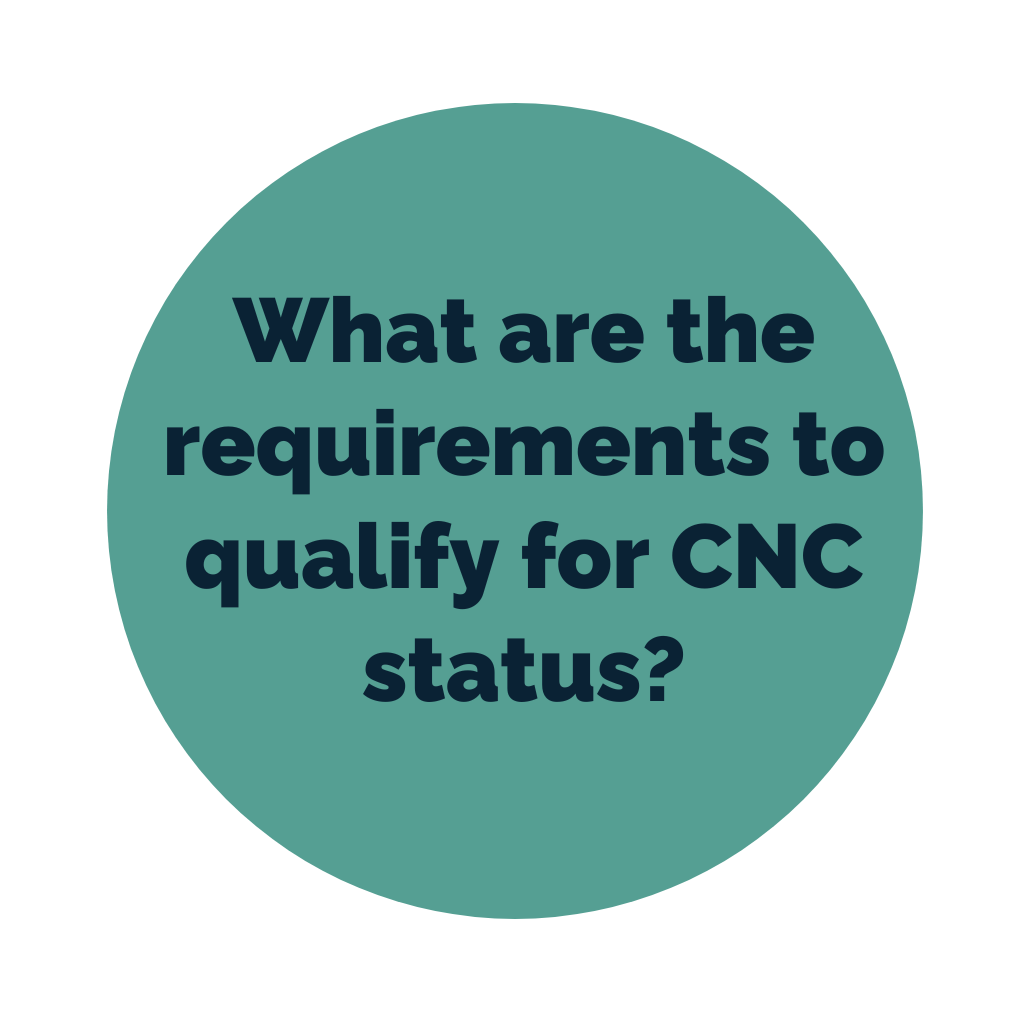
Does CNC Affect Your Credit Score?
Short for Currently Not Collectible, CNC status can provide relief by pausing IRS collection efforts when your financial situation makes it impossible to pay. But does obtaining CNC status impact your credit score?
Let’s break it down, so you can make informed decisions about your financial future.
What is CNC and Who Might Seek It
CNC status is a designation granted by the IRS to taxpayers who are unable to pay their tax debt without causing significant financial hardship. Essentially, it’s a recognition that your current financial circumstances make payment impossible without jeopardizing your basic living needs.
Here’s how CNC works: when the IRS determines you qualify for CNC, it temporarily halts all collection activities, such as wage garnishments, levies, and liens.
However, this isn’t a permanent solution. CNC status is reviewed periodically, and if your financial situation improves, the IRS can resume collection efforts.

Anyone experiencing severe financial hardship may benefit from requesting CNC.
Common circumstances include:
- Individuals with little to no disposable income after covering basic living expenses.
- Taxpayers facing unemployment or underemployment.
- Those with high medical expenses that consume most of their income.
If you’re unsure whether CNC applies to your situation, it’s worth evaluating your income, expenses, and total tax liability to see if pursuing CNC is the right step.
Does CNC Status Affect Your Credit Score?
CNC status itself doesn’t directly impact your credit score. The IRS doesn’t report your tax debt or your CNC designation to the major credit bureaus. However, there are indirect ways your credit score could be affected depending on your situation and how you manage your finances while under CNC.
Federal Tax Liens: While CNC status pauses IRS collection efforts, it doesn’t erase your debt. If you owe more than $10,000, the IRS may file a federal tax lien before granting CNC status. A tax lien is a public record, which means it can appear on your credit report if reported to third parties. Although tax liens no longer directly impact credit scores due to changes in credit reporting rules, they can still affect your ability to secure loans or credit because lenders often check public records.
Accruing Interest and Penalties: Even with CNC status, your unpaid tax debt continues to grow because interest and penalties accrue. This larger debt can strain your overall finances, making it harder to pay other obligations like credit card bills, car loans, or mortgages. Missed or late payments on those accounts will directly harm your credit score.
Credit Utilization Ratio: If CNC status helps you avoid wage garnishment or levies, you might free up income for other expenses. However, if your financial hardship continues and you rely heavily on credit cards to cover basic living expenses, your credit utilization ratio could spike. A high ratio—using a large portion of your available credit—can negatively affect your credit score. Aim to keep your utilization below 30% if possible.
Difficulty Securing New Credit: While the IRS doesn’t report CNC status to credit bureaus, lenders may still consider your unpaid tax debt when reviewing your creditworthiness. If you apply for a loan or mortgage while carrying unresolved tax debt, some lenders may see it as a red flag, even if it doesn’t appear on your credit report. This could result in higher interest rates or denied applications.
 Requirements for CNC Status
Requirements for CNC Status
Qualifying for CNC status requires showing to the IRS that you cannot pay your tax debt without financial hardship. Here’s what you’ll need to do:
- Submit Financial Documentation: The IRS requires detailed information about your income, expenses, and assets to evaluate whether CNC status is appropriate. You’ll need to submit prior year tax returns and proof of income and recurring expenses.
- Meet Financial Hardship Criteria: Your necessary living expenses must exceed your income. The IRS uses strict standards to determine what qualifies as a necessary expense, including housing, utilities, food, and transportation.
- Stay Current with Tax Filings: Even if you can’t pay, you must file all required tax returns to qualify for CNC status. The IRS won’t grant CNC to taxpayers who haven’t filed their returns.
- Avoid New Tax Debts: While in CNC status, you must avoid accruing new unpaid tax balances. Failing to do so could lead to immediate revocation of your CNC designation.
Best Practices for Managing CNC Status and Minimizing Credit Risks
If you’re considering CNC status, follow these steps to protect your financial health and avoid unnecessary complications:
- Keep Detailed Records: Maintain copies of all financial documents submitted to the IRS, along with their responses and any CNC-related correspondence. This will make it easier to renew your status if necessary or resolve disputes.
- Monitor Your Financial Situation: CNC status is not permanent. If your income or financial circumstances change, the IRS could reevaluate your eligibility. Regularly review your finances and be prepared to update the IRS.
- Consider a Long-Term Strategy: CNC pauses collection efforts, but it doesn’t eliminate your tax debt. Interest and penalties will continue to accrue, which can make your debt grow over time. Explore other resolution options, such as an Offer in Compromise, installment agreements, or bankruptcy (in rare cases), to resolve your tax liability for good.
- Stay Compliant: Filing your taxes on time and paying what you can each year is crucial to maintaining CNC status and avoiding further complications with the IRS.
To protect your credit while managing tax debt under CNC, consider these strategies:
- Set Priorities: Focus on staying current with other financial obligations like credit card payments, rent, and utilities. Missing payments on these accounts can have a greater impact on your credit score than your CNC status.
- Monitor Your Credit Report: Regularly check your credit reports for inaccuracies, particularly regarding tax liens. You can access free reports annually from all three major bureaus at AnnualCreditReport.com.
- Avoid Additional Debt: While it might be tempting to rely on credit cards during financial hardship, increasing your debt load can harm your credit score and create long-term challenges. Look for other resources or financial assistance programs to cover necessary expenses.
- Communicate with Creditors: If you’re struggling to make payments on other debts, reach out to your creditors. Many offer hardship programs or temporary payment plans that won’t harm your credit score as much as missed payments would.
Take Control of Your Tax Situation
Currently Not Collectible status can provide much-needed relief when you’re overwhelmed by tax debt, but it’s not a one-size-fits-all solution.
While CNC doesn’t directly affect your credit score, the financial challenges associated with unpaid tax debt can. Understanding the process and taking steps to protect your financial future are essential.
If you’re unsure whether CNC status is right for you or how to navigate the IRS process,
The Law Offices of Alyssa Maloof Whatley can help. We specialize in helping Atlanta-area taxpayers resolve tax issues and regain control of their finances. Contact us right now to explore your options and start building a path to financial stability.




